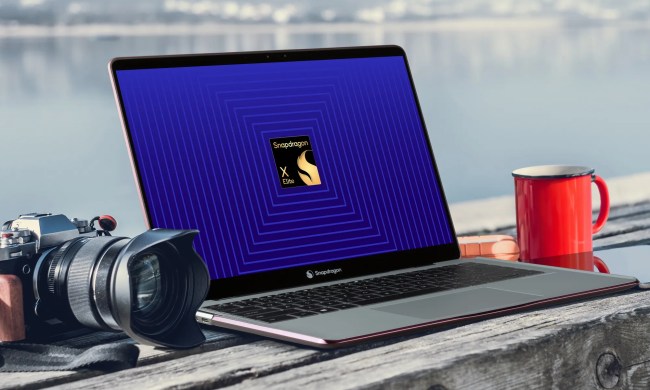(in)Secure is a weekly column that dives into the rapidly escalating topic of cybersecurity.
When it comes to cybersecurity breaches, we tend to think of large corporations or governmental institutions that hold vast amounts of personal data. However, hospitals and medical centers are organizations that hold onto thousands of personal records. When they’re hit by epidemics as bad this year’s flu outbreak, they’re left completely vulnerable to a cyberattack that could touch their patients’ valuable medical records.
We spoke with Shane Whitlatch, an executive at the cybersecurity company FairWarning, whose clients are hospitals that have been or could one day be the victims of cybersecurity attacks. According to their information, something as harmless as checking in to a hospital when you have the flu could have huge ramifications on your cybersecurity — and you would never even know about it.
Digital Trends: This year’s flu outbreak was particularly bad. What kind of things happen at a hospital during something like a flu outbreak, that can have such a negative impact on a hospital’s cybersecurity?
Shane Whitlatch: The flu epidemic is just another crisis. There can be many different types, but what’s important in a crisis isn’t necessarily what happens right there during the actual event. What’s important is whether or not [the hospital] planned well before the crisis. Did you have processes, programs, and action items in place that prepare you so that when you do have a crisis — whether it’s a flu epidemic, a terrorist attack, or train accident — you aren’t left vulnerable to a cybersecurity attack.
“Are there steps I can skip so I process patient care faster and put less priority on security?”
It’s oversight. People start to skip steps. If I normally check in 10 patients an hour, but now I’m going to get double that, I need to move faster if I’m going to see these patients. Can I just stayed signed in? Do I have to badge in? Are there steps I can skip so that I process patient care faster and put less of a priority on security?
Criminals look for opportunities — and the during the flu outbreak, they know the focus is going to be on those events. So maybe there’s an opportunity for them there when employees are leaving sign-ins logged on to computers longer because they’re busy seeing more patients than they normally do. Maybe it means they’re sharing credentials more frequently because they’re focused on patient care. It just presents opportunity. If you don’t train your staff and you aren’t prepared — you’re going to not only hit by the crisis, but also by criminals who are looking to exploit those opportunities.
Is there a precedent for hospitals being hacked or attacked by cyber-criminals? Is that something that is happening regularly?
If it hasn’t happened yet, they probably just don’t know about it yet. So the answer is yes.
We’ve got an example — and this is in the public record — of Hurley Medical Center in Flint Michigan. It had hacktivist attacks going after medical record associated with the water crisis up there. I think the answer is “yes,” but I’d like to let third-parties be the reference points for that.
In the case of something like a hack, what should people be worried about as patients?
There are some things that are obvious, and some that are less so. The most obvious thing is your insurance information. That’s what’s valuable. They wouldn’t steal the data if it wasn’t valuable. They can take your insurance information, change your mailing address, and sell that to someone who can’t get insurance. That’s the first thing — so pay attention to your EOB (explanation of benefits) letters that you get in the mail. If it says you got some treatment for something that was covered that you never received, that’s a problem. That could maximize your benefits and hit your deductible and you never even got care. Those are the obvious ones.
They wouldn’t steal the data if it wasn’t valuable.
The ones that aren’t so obvious we’ve heard from our customers are where people have changed information on the stolen medical records. If I’m using a stolen ID and I go to a local hospital somewhere — and let’s say I haven’t been treated there before and I have a fake ID — to get seek care for something like a broken arm, or something worse, which it usually is. But if my blood type is different than the person it was stolen from, the hospital might change your blood type on your medical record because they assumed the person didn’t know their blood type. That may not matter to you now, but if you get in a car accident and need a blood transfusion or something like that, they might put the wrong blood in. That’s a less obvious consequence — and it can be a deadly one.
Right now, do you feel like hospitals are aware of how important cybersecurity is?
Certainly, now more than before. Our customers, obviously, are aware of them and are fighting the good fight. What’s encouraging from what I’m hearing from them and from the executives themselves, is that the board is becoming more aware.
That’s partially because of education and because of very public breaches. The Anthem breach was a major one. There are very large breaches that are making the news where board members are seeing it and starting to ask questions. It’s becoming more well-known outside of just IT security, but absolutely IT security is aware of it.
Is there anything that patients can do to protect their own medical information when they’re checking into a hospital or interacting with their health records in any way?
I’ll speak personally — I try not to share my social security number as best I can. It’s probably already stolen anyways. The other thing you can always do is ask for an accounting of disclosures, which gives you a record of everyone who’s touched your records — and that’s part of a federal law.
The other thing is just being vigilant about where you go to seek care and what you do with your information and who you share it with. Pay attention to the forms they have you sign. When they ask if they can share your information, don’t just blindly sign all of them. Ask questions about it. Be vigilant. And when you do that, it’s another form of educating the hospital staff that this privacy things does matter. It’s not just a poster on a wall.




